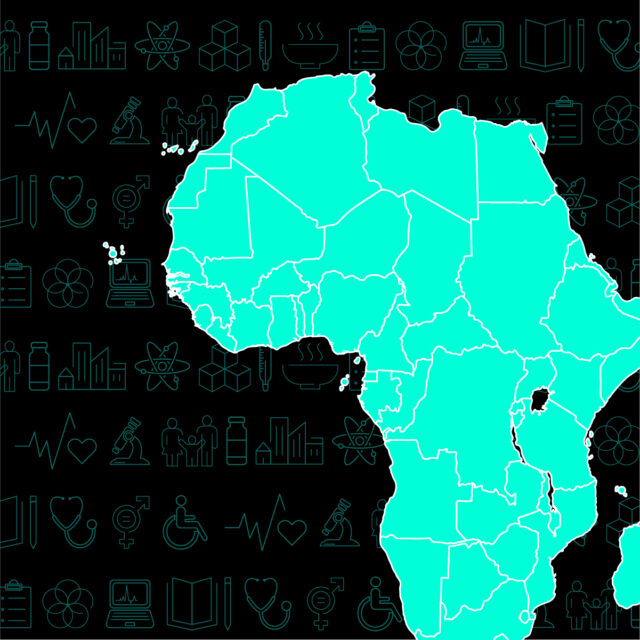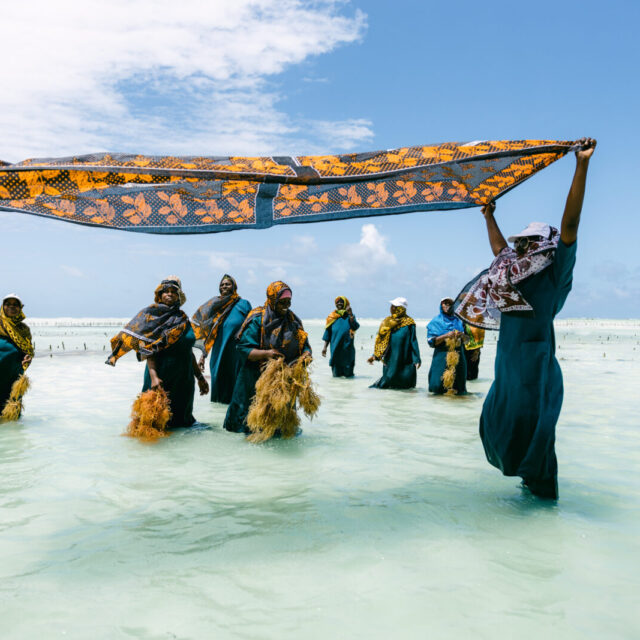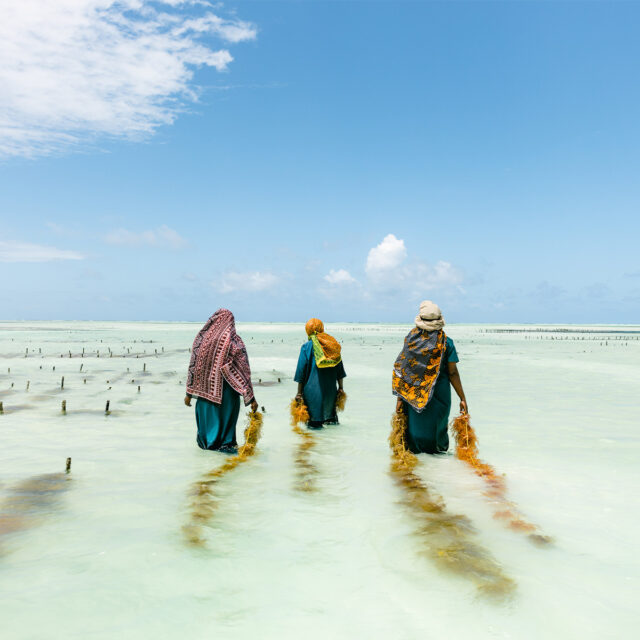View our data tracker and sign up for our weekly newsletter. This week: Monkeypox cases doubling every two weeks, mounting violence in northern Nigeria, a new malaria vaccine hitting the streets, and more.
Top stories
Deadly plateau: New analysis from ONE shows the considerable strain the war in Ukraine is putting on ODA budgets. Global in-donor refugee costs, which donors can count as ODA, could exceed $42 billion in 2022. That would equal nearly one-quarter of total ODA spent in 2021. Aid budgets have plateaued in recent years, despite escalating costs from COVID-19, climate change, and the food security crisis. A failure by donor countries to significantly increase ODA could have devastating effects on other crucial life-saving programs and countries in need.
WANTED: Food security: Now that a Ukraine-Russia deal is in place to unblock Ukraine grain exports, the next step is assuring the insurers that the ships will find safe passage. That’s no guarantee: the Black Sea is littered with mines, and Russia’s military bombed the port city of Odesa the day after the deal was signed. As many as 100 vessels and millions of tons of grain have been trapped in Ukraine since Russia’s invasion, exacerbating global food prices and hunger crises. Meanwhile, in an apparent bout of amnesia, Russia’s foreign minister tried to blame the West for food shortages during a trip to Egypt, Ethiopia, Uganda, and the Republic of Congo, seemingly forgetting that his country has targeted farms, food storage facilities, and ports inside Ukraine.
Cause for concern: The WHO is forecasting that there will be over 27,000 cases of monkeypox across 88 countries by 2 August, with case numbers doubling every two weeks. Last week, the WHO declared monkeypox a public health emergency of international concern. Particularly troubling is that transmission is not fully understood. While the current concentration of cases (mostly in Europe) is receiving widespread international attention, Africa has been dealing with outbreaks of monkeypox since the 1970s, with little notice. Some experts have called out the hypocrisy and danger of ignoring those earlier outbreaks. Others worry that stigmatisation will stunt the international response, with gay or bisexual men overwhelmingly affected by the current outbreak. A vaccine exists, but like with COVID-19 (which is again on the rise), equal access is vital. Sound familiar?
Kidnapping spree: Kidnapping for ransom has become a lucrative industry in northern Nigeria, where nearly 1 million people in Zamfara state have been displaced. As many as 30,000 bandits are participating in inter-tribal conflict between Hausa and Fulani. It’s rooted in a struggle over land and water. Groups are also using violence to air grievances against the government (Zamfara state has the worst healthcare in Nigeria). Kidnapping for ransom is helping to finance violence: one gang said it received 60 million Naira (US$140,000) in ransom from the government for releasing nearly 300 kidnapped schoolgirls, and then used the money to buy more guns. Zamfara state government denies paying the ransom. One gang leader says “I can’t remember how many I have killed.” The violence has closed schools, and the state government is urging citizens to carry guns to defend themselves. Some evidence suggests that government forces have participated in some of the attacks.
AIDS aid: HIV/AIDS is one of the leading causes of death for women of reproductive age, with 38.4 million people living with HIV/AIDS globally in 2021. The COVID-19 pandemic has hampered testing and treatment. In South Africa, service delivery fell by 40% in 2021. At the 2022 AIDS Conference (happening this week in Montreal), experts are urging leaders to meet the funding needs of The Global Fund to fight AIDS, Tuberculosis and Malaria. The US has committed $6 billion of the $18 billion required over the next three years — although that needs congressional approval and could decrease if other countries don’t deliver at least two-thirds of the total. To meet the target, France, Japan, and Germany need to increase their funding by 30%. 📈
Vaccine buzz: After decades of research, a new malaria vaccine is ready to be rolled out. Mosquirix prevented cases by 39% and severe cases by 29% in trials. But there might not be enough to go around. GSK, the vaccine manufacturer, can only produce 15 million doses per year until 2028, far short of the estimated 80-100 million doses needed annually. Ghana, Kenya, and Malawi are set to get the first post-pilot roll out of vaccines from Gavi; the WHO is urging other African countries to apply for funding from a $160 million funding pool. In 2020, nearly 500,000 children in Africa died from malaria. A different malaria vaccine that could be twice as effective in preventing malaria is nearing the end of phase 3 trials.
Seeking redemption: French President Emmanuel Macron is trying to mend France’s relationship with Africa in his first-ever visit to Cameroon, Benin, and Guinea-Bissau. The mounting food and economic crises, along with regional security, are top of the agenda. Colonial era tensions form the backdrop to the visit. Macron has insisted that France’s military presence in Africa will not decline despite its troops pulling out of Mali. But analysts have warned that France’s relationship with the continent is at one of its weakest points ever.
From the ONE team
- We’ve compiled a list of amazing thinkers and doers working on health, climate, gender, and economic justice. Give them a follow.
- ONE partnered with The Citizen to investigate how emergency funding to address the health and social impacts of COVID-19 has increased access to education, with an additional 15,000 classrooms built in Tanzania.
- ONE and its partners analysed the status of healthcare in Nigeria’s 36 states. SPOILER ALERT: healthcare in many states remains poor.
- Global Policy Director David McNair explains the impacts of the IMF’s downgrade of the global economic outlook and the implications of Russian Foreign Minister Sergy Lavrov’s trip to Africa.
- ONE’s CEO Gayle Smith details how the global fight against HIV/AIDS can be won.
The numbers
- $100 million has been provided to the African CDC by the World Bank to support public health preparedness.
- 42.6% of critical funding to address the hunger crisis in Somalia has been provided, leaving a gap of $836.8 million, despite an additional $476 million provided by USAID.
- 86 million: the estimated number of internal climate migrants in sub-Saharan Africa by 2050, 4% of the region’s population.
More reads
- Ghana’s “success” exposes the West’s toxic development model. (Foreign Policy)
- Credit Suisse has been ordered to pay $22.6 million for its role in a tuna bonds scandal that cost Mozambique’s economy $11 billion. (Financial Times)
- Leading figures urge a UK drug firm to lower the price of its “game-changing” HIV prevention drug. (The Guardian)
- AfCFTA has launched a tracker to monitor progress towards the continental free trade area, a cornerstone of the 2063 AU Agenda. (AfCFTA)
- Think tanks must do a better job of analysing the long-term challenges of and solutions to climate change. (Carnegie Endowment for International Peace)
- The debt crisis in emerging economies is driving up the cost of borrowing globally. (Bloomberg)
-
Sign up for our weekly Aftershocks email for the latest news, stats, and analysis.



